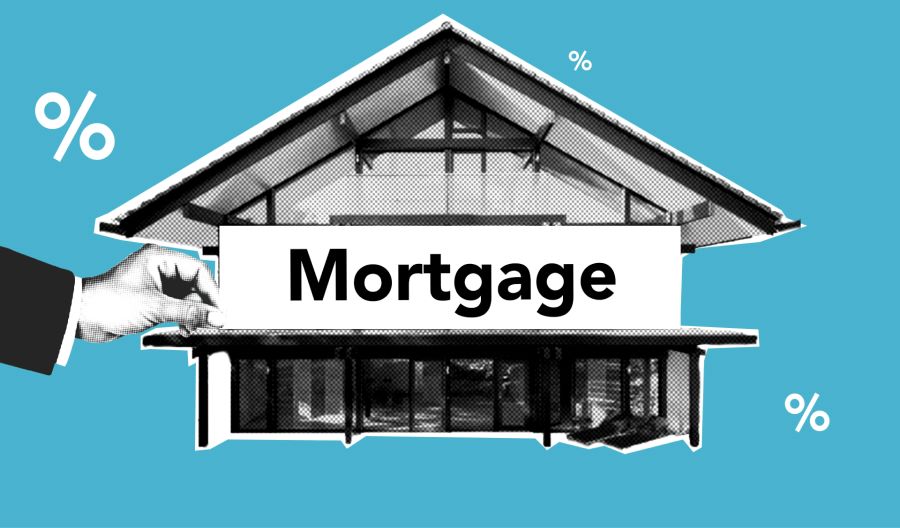A loan against securities (LAS) stands out as a flexible and convenient borrowing option. This financial instrument allows individuals to leverage their investments in securities to secure a loan. By pledging shares, mutual funds, bonds, or other securities, borrowers can access funds without liquidating their assets. This blog delves into the meaning of a loan against securities, the eligibility criteria, and the steps to apply for such a loan.
But if you are just looking for an instant personal loan boost for your finances without any security, then consider Airtel Finance. Get the best interest rates on your loan, low processing fees, and an easy application process, all through the Airtel Thanks app!.
Meaning of Loan Against Securities
A loan against securities (LAS) is a secured loan where the borrower pledges financial assets such as stocks, bonds, mutual funds, or other securities as collateral. The lender provides a loan based on the market value of these pledged securities. The loan amount is usually a percentage of the market value of the pledged securities, ranging from 50% to 80%, depending on the type of security and the lender’s policies.
Read more: Get a personal loan without security
Key Features of Loans Against Securities
- Secured Loan: LAS is a secured loan, meaning the borrower must provide collateral in the form of securities.
- Flexibility: Borrowers can continue to earn dividends or interest on the pledged securities, retaining ownership.
- Interest Rates: Typically lower than unsecured loans due to the collateral provided.
- Loan Tenure: The tenure can vary, usually ranging from a few months to a few years.
- Usage: The loan amount can be used for various purposes, such as funding business needs, education, medical expenses, or other personal requirements.
Eligibility Criteria for Loan Against Securities
The eligibility criteria for a loan against securities can vary between lenders. However, common criteria include:
- Age: Applicants should generally be between 21 and 65 years old.
- Securities: Only approved securities are eligible. This includes blue-chip stocks, select mutual funds, government bonds, and other high-quality financial instruments.
- Ownership: The securities must be in the applicant’s name. Joint ownership may be accepted depending on the lender’s policies.
- Creditworthiness: While the loan is secured, lenders may still check the applicant’s credit score and financial history to assess repayment capability.
- Minimum Value: Lenders often require the pledged securities to have a minimum market value, ensuring the loan amount is substantial enough to justify the administrative costs.
Read more: How long does it take to improve credit score?

Steps to Apply for a Loan Against Securities
Applying for a loan against securities involves several steps, from identifying eligible securities to receiving the loan amount. Here’s a step-by-step guide:
Step 1: Identify Eligible Securities
Review your investment portfolio to identify securities that can be pledged. Ensure they are approved by the lender for LAS. Commonly accepted securities include:
- Stocks of blue-chip companies
- Units of mutual funds
- Bonds and debentures
- Exchange-traded funds (ETFs)
Step 2: Choose a Lender
Research and compare different lenders offering loans against securities. Look at interest rates, loan-to-value ratios, processing fees, and other terms and conditions. Banks, non-banking financial companies (NBFCs), and brokerage firms typically offer these loans.
Step 3: Application Submission
Once you have selected a lender, fill out the application form. This can often be done online through the lender’s website or mobile app. You’ll need to provide personal details, details of the securities to be pledged, and the loan amount required.
Read more: Tips to get instant personal loan for self-employed
Step 4: Documentation
Submit the necessary documents along with your application. Commonly required documents include:
- Identity proof (Aadhar card, PAN card, passport)
- Address proof (utility bills, passport, Aadhar card)
- Proof of ownership of the securities (demat account statement, mutual fund statement)
- Recent passport-sized photographs
Step 5: Verification and Approval
The lender will verify the submitted documents and assess the value of the pledged securities. This process may involve checking the market value of the securities and confirming their eligibility.
Step 6: Loan Agreement and Pledging
Once the loan is approved, you’ll need to sign a loan agreement detailing the terms and conditions. The securities will be pledged to the lender, meaning they will be marked as collateral in your demat account.
Step 7: Disbursement of Funds
After the agreement is signed and the securities are pledged, the loan amount will be disbursed to your account. This process is usually quick, with funds often released within a few days.
Read more: How to maintain a healthy CIBIL score?
Advantages of Loan Against Securities (LAS)
- Quick Access to Funds: LAS provides quick access to funds without the need to sell your investments.
- Lower Interest Rates: Compared to unsecured loans, LAS typically has lower interest rates due to the collateral provided.
- Retain Ownership: You retain ownership of the pledged securities and continue to earn dividends or interest.
- Flexible Usage: The loan amount can be used for any purpose, offering flexibility to the borrower.
Considerations and Risks
- Market Risk: The value of the pledged securities can fluctuate, impacting the loan amount and potential margin calls from the lender.
- Repayment Obligation: Failure to repay the loan can result in the lender liquidating the pledged securities to recover the outstanding amount.
- Interest Rates: While lower than unsecured loans, the interest rates can still be significant, especially if the loan tenure is extended.
A loan against securities is a versatile financial product that provides borrowers with quick access to funds while allowing them to retain ownership of their investments. However, it’s essential to carefully consider the risks and ensure timely repayment to avoid potential loss of the pledged securities.
FAQs
What are Loans Against Securities?
Loans Against Securities are loans provided by banks or financial institutions where borrowers pledge their securities (stocks, mutual funds, bonds, etc.) as collateral to secure the loan.
How do Loans Against Securities work?
Borrowers pledge their securities with the lender, who provides a loan amount based on a percentage of the securities’ market value. Interest is charged on the loan amount.
What types of securities can be pledged for such loans?
Securities typically include shares, mutual funds, bonds, and other marketable securities held in dematerialized form in Depository Participant (DP) accounts.
What are the benefits of Loans Against Securities?
Benefits include lower interest rates compared to unsecured loans, quick disbursal, and the ability to retain ownership and benefits (like dividends) of pledged securities.



